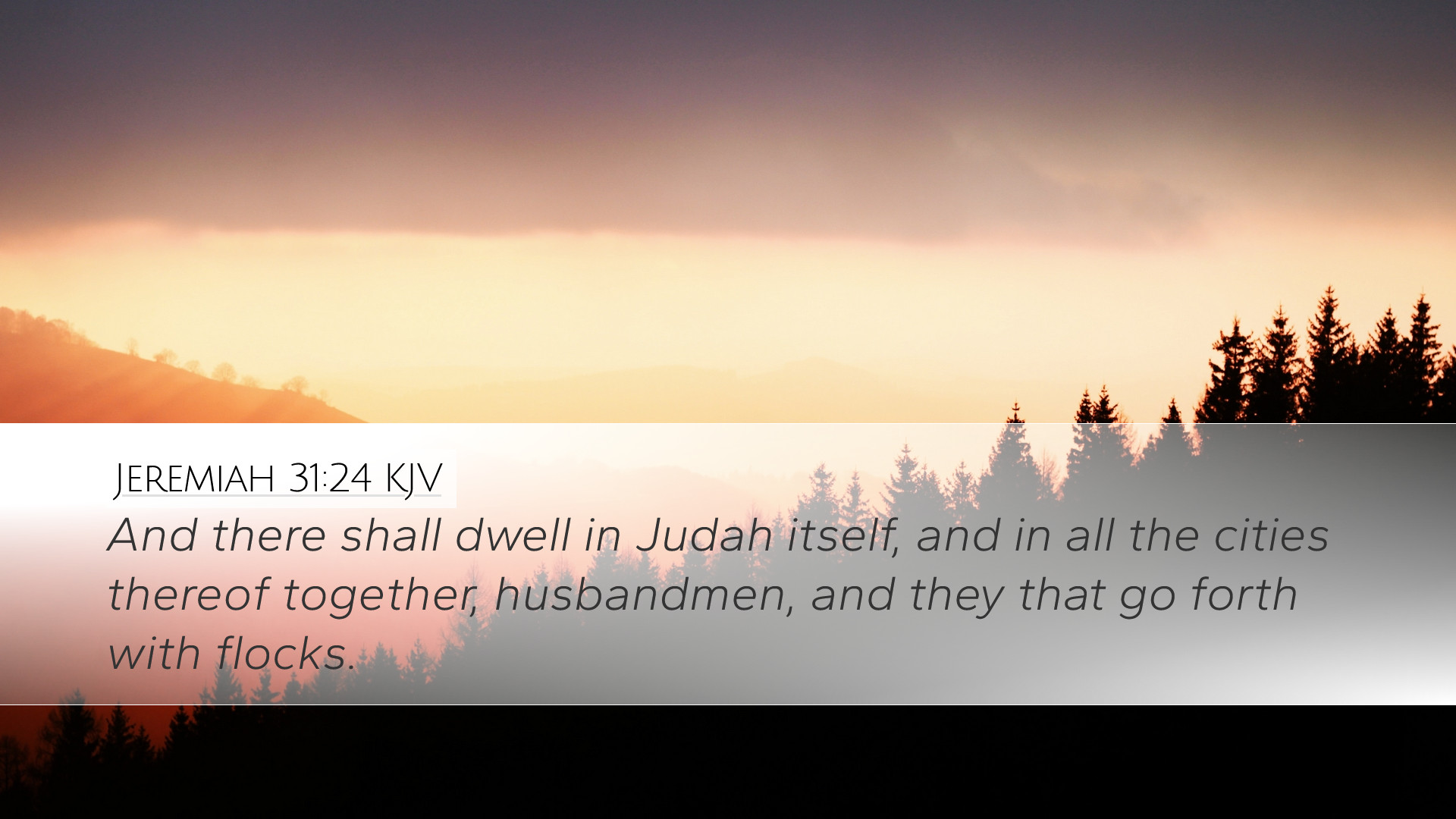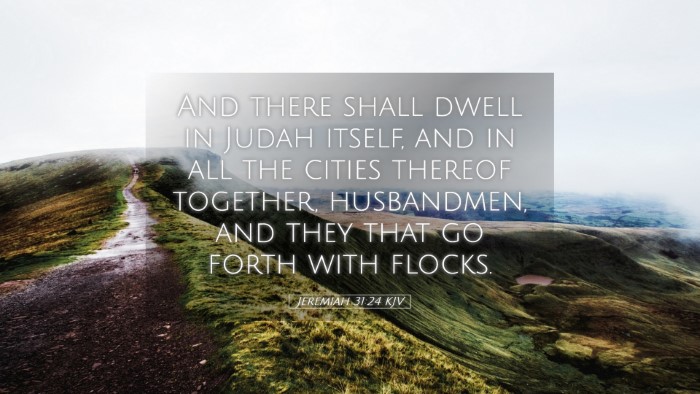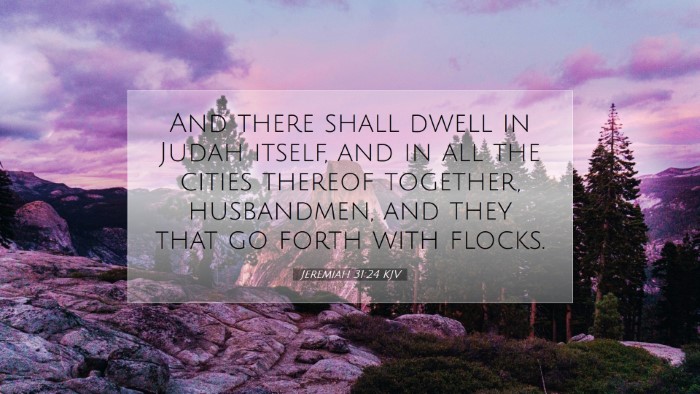Commentary on Jeremiah 31:24
Jeremiah 31:24 states: "And Judah and all its cities shall dwell there together, and the farmers and those who wander with their flocks." This verse is pivotal in understanding the promise of restoration and peace that God offers to His people.
Contextual Overview
The Book of Jeremiah is rich with themes of judgment, hope, and restoration. In this particular chapter, the prophet Jeremiah transitions from pronouncements of judgment to promises of restoration. The historical context includes the Babylonian exile, where the Jewish people faced immense despair. Jeremiah’s message seeks to provide hope for the future, emphasizing God’s faithfulness to His covenant.
Insights from Public Domain Commentaries
Matthew Henry's Commentary
Matthew Henry emphasizes the unity between Judah and its cities in the promise of restoration. He notes that this is not merely a physical gathering but also a spiritual reunion under God's covenant. Henry highlights that the "farmers and those who wander with their flocks" signify both prosperity and peace. This description serves as a metaphor for the abundant life that awaits the faithful—a time when agricultural work and pastoral care will flourish in peace.
Albert Barnes' Notes on the Bible
Albert Barnes provides a deep analysis of the sociocultural implications of this verse. He suggests that the mention of "farmers" and "those who wander with their flocks" represents a return to agrarian stability, a fundamental aspect of life in Judah. Barnes argues that this signifies restoration not only in a physical sense but also in relational and communal aspects of society. The gathering of various groups—farmers and shepherds—demonstrates a harmonious existence, indicative of the ideal community God desires for His people.
Adam Clarke's Commentary
Adam Clarke examines the prophetic language in this verse. He notes that the term "Judah and all its cities" symbolizes inclusivity and the coming together of different elements of society. Clarke points out that the phrase reflects God’s promise that despite the turmoil, He will restore His people and their territories. The inclusion of "those who wander" underscores a compassionate and welcoming attitude toward all who seek refuge and restoration. Clarke likens this to the New Covenant, where all are invited to dwell in God's presence.
Theological Implications
The theological implications of Jeremiah 31:24 are profound. The promise of restoration signifies not just a physical return to the land but a deeper spiritual renewal. This verse underscores the themes of community, restoration, and divine faithfulness, which are central to God’s character. Pastors and theologians might draw parallels between this promise and the New Testament invitation to embrace grace and communal life in Christ.
Restoration and Hope
This verse is significant for its message of hope. It reassures the people of Judah that their current state of despair is not the end of God's plan for them. Instead, they can look forward to a future marked by unity, peace, and divine providence. This hope is a central theme throughout the scriptures, encouraging believers to hold on to God's promises amidst trials.
Communal Life
The imagery of farmers and shepherds emphasizes the importance of community in God’s plan. It is a reminder that God cares not just for individuals but for the collective well-being of His people. This verse challenges modern readers to consider their role in fostering community and support within their own congregations and society.
Conclusion
Jeremiah 31:24 serves as a powerful testament to God's commitment to His people. Through the insights provided by Matthew Henry, Albert Barnes, and Adam Clarke, we see a multifaceted understanding of restoration, hope, and community. This verse invites pastors, students, and theologians to reflect on their own contexts, encouraging them to seek a deeper understanding of God’s promises in their ministries and lives.


